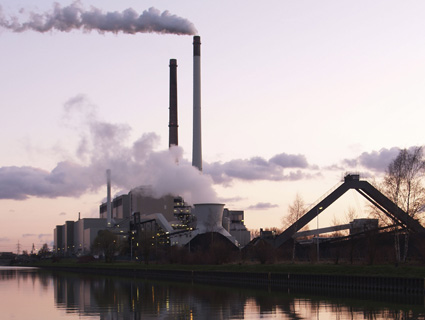
<a href="http://meta.wikimedia.org/wiki/File:Coal_power_plant_Datteln_2.jpg">Arnold Paul</a>/Wikimedia
Chances are, you’ve heard coal pollution statistics before. Like how, in one year, the typical coal plant produces 3.7 million tons of carbon dioxide, 10,000 tons of sulfur dioxide, and 170 pounds of mercury. But you may still be asking, “How do these numbers actually affect me?”
Enter the Sierra Club, which just released a quiz that answers that question. In three simple steps, Coal in Your Life shows the number of ashtma attacks and deaths tied to coal-fired plants in your zip code, your mercury intake from seafood, and the routines that make you vulnerable to poor air quality, such as exercising outdoors. To test my risks, I tried three different zip codes I’ve called home. In my current city—pollution-conscious San Francisco—about 17 ashtma attacks and two deaths in 2010 were linked to coal-fired power plants. In New York City, the numbers were even scarier: About 785 asthma attacks and 55 deaths could be linked to coal pollution last year.
Finally, I tried my childhood home, Palm Beach County, where I found that 186 asthma attacks and 17 deaths resulted from power-plant pollution. The good news is, my hometown has just taken steps to improve its air quality. On Sunday morning, two oil-powered smokestacks from the ’60s were demolished in Riviera Beach. (On my way to high school, I used to drive past their thick black billows every morning.) They will be replaced in 2014 with natural-gas smokestacks that burn 33 percent less fuel per megawatt hours.
In order to encourage the rest of the country to follow suit, the Sierra Club includes an easy link to email the Environmental Protection Agency. As a result of my message, the EPA now knows that I scored a five out of 10 on my exposure to pollution. Granted, two of those points come from the six servings of fish I eat per month. Perhaps it’s time to cut back on the canned tuna.
















